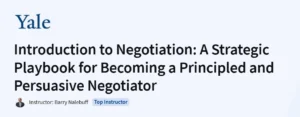What will you in Managing Project Risks and Changes Course
Define components of a communications management plan.
Prioritize identified risks and develop appropriate responses.
Identify and analyze changes to project scope.
Understand the importance of communication channels in project management.
Measure and report on project scope, schedule, and cost performance.
Conduct effective lessons learned sessions to improve future projects.
Program Overview
1. Introduction to Managing Project Risks and Changes
⏱ Duration: ~13 minutes
Course overview and objectives.
Importance of risk and change management in projects.
2. Project Communication
⏱ Duration: ~1 hour
Developing a communications management plan.
Understanding communication channels and their impact.
Measuring and reporting on project performance metrics.
3. Identifying Project Risks
⏱ Duration: ~1 hour
Techniques for identifying potential project risks.
Tools for documenting and categorizing risks.
4. Analyzing and Responding to Risks
⏱ Duration: ~1 hour
Prioritizing risks based on impact and likelihood.
Developing risk response strategies.
Implementing risk mitigation plans.
5. Managing Project Changes
⏱ Duration: ~1 hour
Identifying and analyzing changes to project scope.
Understanding the causes and effects of project changes.
Conducting lessons learned sessions to capture insights.
Get certificate
Job Outlook
Proficiency in risk and change management is crucial for project managers across various industries.
Skills acquired in this course are applicable to roles such as Project Manager, Risk Analyst, and Change Management Specialist.
Enhances the ability to deliver projects successfully by proactively managing uncertainties and changes.
Explore More Learning Paths
Enhance your project management and risk mitigation skills with these curated programs designed to help you plan, execute, and adapt projects effectively in dynamic environments.
Related Courses
Project Initiation: Starting a Successful Project Course – Learn how to kick off projects, define objectives, and set a strong foundation for successful execution.
Introduction to Project Management Course – Build a comprehensive understanding of project planning, scheduling, resource allocation, and risk management.
Engineering Project Management Specialization Course – Explore strategies and tools for managing complex engineering projects from initiation to delivery.
Related Reading
Gain deeper insights into managing uncertainty and achieving project success:
What Is Risk Management? – Understand the strategies organizations use to identify, assess, and mitigate risks in projects and business operations.
Specification: Managing Project Risks and Changes Course
|
FAQs
- Suitable for anyone involved in projects, not just managers.
- Beneficial for team leads, coordinators, and analysts.
- Provides transferable skills applicable across industries.
- Helps individuals new to project roles understand risk/change basics.
- Useful even for entrepreneurs managing small teams or startups.
- Teaches practical risk identification and prioritization methods.
- Introduces strategies for responding to unexpected changes.
- Explains how to communicate issues clearly to stakeholders.
- Reinforces proactive problem-solving skills.
- Encourages lessons-learned sessions for continuous improvement.
- Applies to construction, healthcare, finance, and education.
- Risk principles are industry-agnostic and widely applicable.
- Communication and change management are universal project needs.
- Emphasizes structured methods usable across fields.
- Equips learners with adaptable frameworks for diverse industries.
- No prior software expertise is required.
- Focus is on concepts, not specific platforms.
- You can later apply learnings in tools like MS Project or Jira.
- The course uses examples, not heavy technical setups.
- Ideal for learners starting with foundational skills.
- Adds credibility for project management roles.
- Builds confidence in handling high-stakes projects.
- Prepares you for risk or change analyst positions.
- Enhances performance in cross-functional teams.
- Demonstrates proactive leadership to employers.





